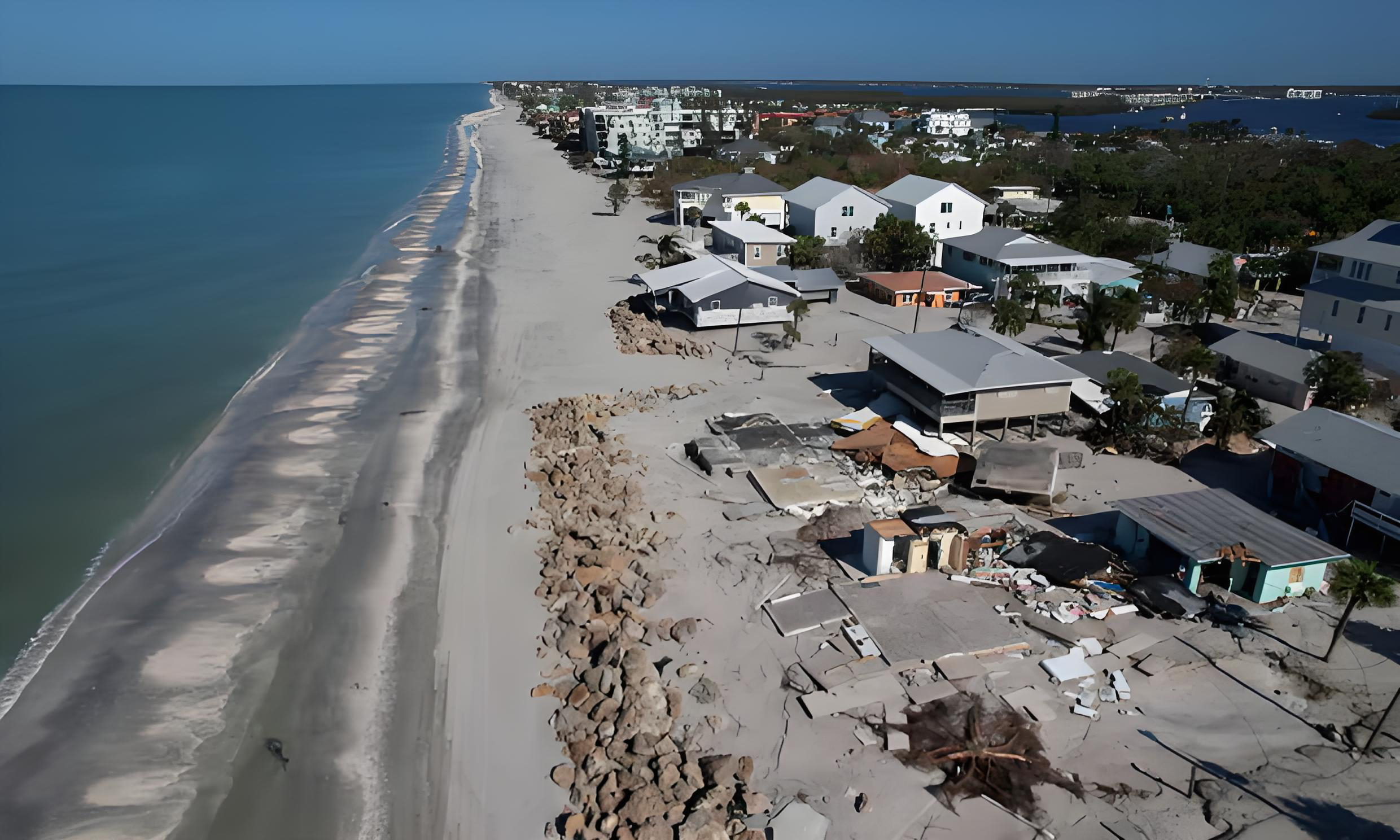
The world’s 10 most costly climate disasters of 2024 caused $229bn in damages and killed 2,000 people, the latest annual analysis of insurance payouts has revealed.
Three-quarters of the financial destruction occurred in the world’s biggest economy, the US, where climate denier Donald Trump will become president next month.
For the first time since the ranking was first compiled in 2018, there were two storms in a single year responsible for more than $50bn of losses: the hurricanes Helene and Milton that battered the US in September and October.
Released at the end of what is almost certain to be another record-breaking year for global heat, the top 10 also included Typhoon Yagi in south-east Asia, which killed at least 829 people and wreaked $12.6bn of economic havoc; Storm Boris in Europe, which killed at least 26 and caused $5bn of losses; and the devastating floods in southern China, Bavaria, Valencia and Rio Grande do Sul in Brazil.
The rising financial impact of human-caused climate disruption was apparent in another first: all of the top 10 disasters racked up bills of more than $4bn.
In every case, climate scientists calculated how much more likely the catastrophes were made by the burning of fossil fuels, such as gas, oil and coal.
Dr Mariam Zachariah, a world weather attribution researcher at Imperial College London, said: “Most of these disasters show clear fingerprints of climate change. Extreme weather is clearly causing incredible suffering in all corners of the world.
“This report is just a snapshot of climate devastation in 2024. There are many more droughts, heatwaves, wildfires and floods not included that are becoming more frequent and intense.”
The ranking is compiled at the end of each year by Christian Aid, using data from insurance payouts. The charity said the true cost of disasters is likely to be much higher because many people are uninsured, particularly in poor countries.
The NGO noted that other major climate disasters in 2024 had a lower immediate financial impact, but would have an incalculable knock-on cost in terms of deaths, destruction of globally important ecosystems and long-term damage to food supplies, social stability or sea levels. This included floods in west Africa, landslides in the Philippines, droughts in southern Africa and heatwaves in Bangladesh, Gaza and east Antarctica.
Christian Aid’s CEO, Patrick Watt, urged global policymakers to cut emissions and increase compensation payments to poor countries. “The human suffering caused by the climate crisis reflects political choices. There is nothing natural about the growing severity and frequency of droughts, floods and storms,” he said.
“Disasters are being supercharged by decisions to keep burning fossil fuels, and to allow emissions to rise. And they’re being made worse by the consistent failure to deliver on financial commitments to the poorest and most climate-vulnerable countries.”